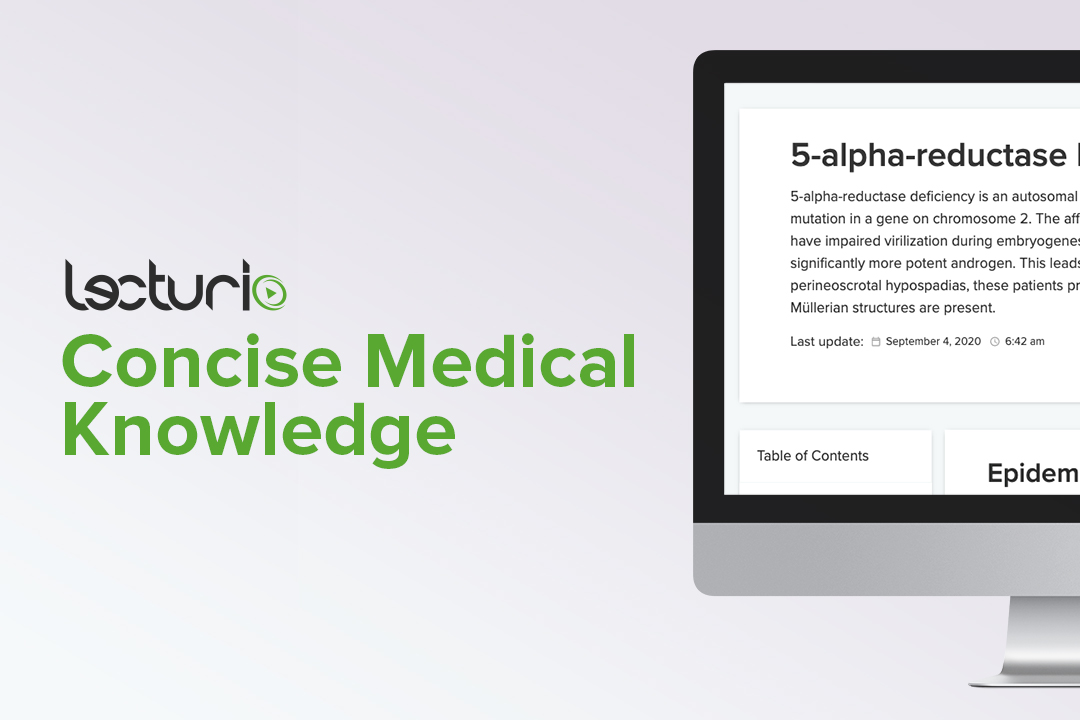Playlist
Show Playlist
Hide Playlist
5-Alpha Reductase Deficiency
-
Slides 5-Alpha Reductase Deficiency.pdf
-
Reference List Pathology.pdf
-
Download Lecture Overview
00:01 Reproductive hormone disorders: 5-Alpha reductase deficiency. 00:06 This is the inability of males to convert testosterone to DHT, dihydrotestosterone. 00:15 These patients will have ambiguous genitalia until puberty. Their internal genitalia are normal. 00:23 The testosterone and estrogen levels are normal but luteinizing hormone or LH can be normal or increased. 00:32 When looking at male development, you have to consider here the role of 5-Alpha reductase. 00:39 It starts with the SRY gene from the Y chromosome, this is the testes determining factor and leads to testes development. 00:48 The testes are composed of Sertoli cells and also Leydig cells. 00:55 For sertoli cells you have Mullerian inhibiting factor or IHF and this leads to the inhibition of Mullerian or paramesonephric ducts which leads to no internal female parts. 01:11 The Leydig cells which released testosterone and testosterone is then converted by 5-Alpha reductase to DHT or dihydrotestosterone, and the presence of DHT will go to the general tubercle or the urogenital sinus which leads to the development of the penis and the prostate. 01:32 Testosterone itself from the Leydig cells will also lead to the mesonephric Wolffian duct which leads to male internal genitalia and this is how you get both internal and external male parts. 01:46 Comparing 5-Alpha reductase deficiency and androgen insensitivity syndrome, AIS, for 5-Apha reductase deficiency, the mechanism is that you have a defect in converting testosterone to DHT. 02:04 The genotype is genotypically male, xy, and the internal parts are a normal male internal reproductive tract but the external parts are feminized external genitalia, small phallus and hypospadias. 02:20 Androgen insensitivity syndrome has the mechanism of a defect in the androgen receptor. 02:27 These patients are genotypically male, xy, internal parts they have no male internal reproductive tract and the external part is the presence of a lower 1/3 of the vagina.
About the Lecture
The lecture 5-Alpha Reductase Deficiency by Mohammad Hajighasemi-Ossareh, MD is from the course Reproductive Hormone Disorders.
Included Quiz Questions
Which of the following statements regarding the development of the reproductive system is INCORRECT?
- The hormone testosterone regulates the development of the male external genitalia.
- The enzyme 5α-reductase is required to convert testosterone into dihydrotestosterone.
- In 5α-reductase deficiency, the male external genitalia are abnormally developed.
- The hormone dihydrotestosterone regulates the development of the male external genitalia.
- The Mullerian inhibiting factor is produced by the Sertoli cells in the male fetus.
Customer reviews
5,0 of 5 stars
| 5 Stars |
|
5 |
| 4 Stars |
|
0 |
| 3 Stars |
|
0 |
| 2 Stars |
|
0 |
| 1 Star |
|
0 |




